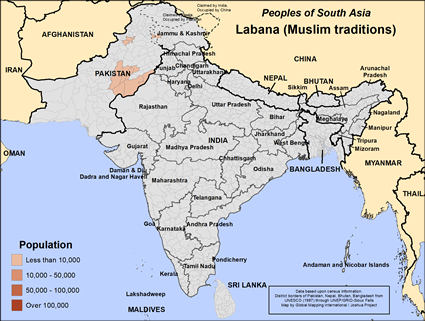The term Lobana comes from the words Lavan (meaning salt) and the Bana (meaning trade). They are known as a merchant caste, moving and trading salt, silk, diamonds, and other goods in South Asia.
Though they were once merchants, the Labana people are now mainly agricultural. With their high-status background, the Labana are probably landowners in most cases.
This community can be Hindu, Sikh or Muslim. Most Muslims among them are in Pakistan but even this is a small community. A tiny number of Labana Muslims are in India.
Most South Asian Muslims depend on the spirit world for their daily needs since they regard Allah as too distant. Allah may determine their eternal salvation, but the spirits determine how well they live daily. For that reason, some Muslims appease spirits using charms and amulets to help them with spiritual forces. More orthodox Muslims consider these practices heretical and un-Islamic.
These people need to put their hope and identity in the King of kings and Lord of lords.
Pray for workers to go to Muslim Labana people, and for their hearts to be ready to receive the only savior.
Pray for families of believers loving and serving others to grow reproducing churches.
Pray for a chain reaction of families reaching families that results in thousands of new believers who share their faith with others.
Pray for grace and truth expanding into their entire society as all believers learn to love others.
Scripture Prayers for the Labana (Muslim traditions) in Pakistan.
https://en.wikipedia.org/wiki/Labana
https://newpakhistorian.wordpress.com/tag/labana-caste-pakistan/
| Profile Source: Joshua Project |











